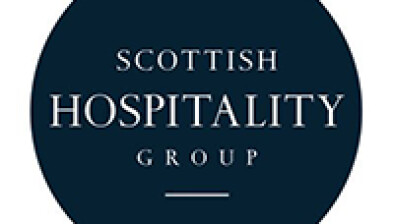Doubt over ‘data not dates’ claim as Scotland businesses face two-tier UK approach
Scotland faces being left behind in the COVID-19 economic recovery compared with England if the incoming Scottish Government is allowed to continue with a two-tier system to emerge in the summer, according to the Scottish Hospitality Group (SHG).

The group has also questioned if the Scottish Government really is pursuing its so-called strategy of ‘data not dates’.
Even with the scheduled easing of restrictions, the SHG predicts that less than half of Scotland’s pubs, restaurants and hotels will be open and trading viably once indoor drinking is allowed, and nightclubs will remain closed. It is now also concerned about more progressive changes in England from the end of June meaning a huge impact on trade in Scotland.
The SHG is calling on the Scottish Government to ensure alignment with England to avoid putting off customers from the UK who are planning a staycation in Scotland and to bring forward changes to the levels system in line with the huge decrease in hospital cases and deaths.
Stephen Montgomery, group spokesperson, said: “No-one should be fooled by the sight of people drinking in beer gardens. Just like the recent weather we’ve had, make no mistake that there are stormy times ahead. As we exit the Covid pandemic, we are entering straight into a debt pandemic, and a call for further financial support is a must. It is a fact that more businesses will go into insolvency as we come out of this crisis if they are given no support to help them get to the other side.
“The First Minister has repeatedly said that they’d be driven by data not dates. Well, the data that really matters – which is how much impact Covid-19 is having on people’s health – could hardly be better and seems to be going in just one direction. So, she should bring forward the dates and allow us to safely enjoy the economic recovery that our counterparts in England are about to benefit from.”
The group has highlighted a range of factors that mean business costs will continue to rise significantly:
- Cleaning regimes requiring extra staff, more supplies and longer turnaround times
- One server per table and no bar service requiring extra staff
- Guest guidance and supervision requiring extra staff to greet and host customers
- Debt servicing and repayment, with an estimated £95k extra debt per site being carried by Scottish businesses
- Wage inflation caused by a shortage of staff
- The stopping of grant support at the end of April.
At the same time, revenue will be negatively affected by:
- No overseas tourism
- Restricted trading hours
- Very little footfall in city centres due to offices being shut
- Reduced capacity with social distancing measures
- Reduced capacity with a lack of outdoor space – only 25% of venues have any outdoor space and not all of those will be viable
- A lack of public confidence due to misguided public health measures and messages
- Weather, with the recent example of cold, wind and rain on the May Day Bank Holiday putting off customers.
In March, an FOI request by Scottish Hospitality Group revealed there was only a general basis for restrictions on hospitality and that there was no evidence that the public health consequences of shutdown had been assessed.
The SHG also questioned the apparent absence of any emails with National Clinical Director, despite government claims of hospitality as a main transmission vector.
The SHG currently has an appeal with the Scottish Information Commissioner on the Government’s refusal to acknowledge or release any relevant correspondence.







